-
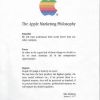 +1 +1
+1 +1Objects of Our Life
Exclusive video footage of Steve Jobs talking about his design vision and philosophy and how design worked at Apple.
-
 +1 +1
+1 +1'Critical' vulnerability in OpenSSH uncovered, affects almost all Linux systems
Researchers at the Qualys Threat Research Unit (TRU) have unearthed discovered a critical security flaw in OpenSSH's server (sshd) in glibc-based Linux systems.
-
 +30 +4
+30 +4how dark mode killed good design
2 comments by Gozzin -
 +37 +3
+37 +3Is Windows REMOVING Local Accounts?
4 comments by Gozzin -
 +43 +3
+43 +3Do You OWN Your Creative Works? ADOBE Says NO
1 comments by Gozzin -
 +36 +3
+36 +3How to Install Ubuntu Touch on Android Device
In this post we are going to explore how to install Ubuntu Touch on Android. Installing the Ubuntu Touch on Android can make a dual-boot on Android.
-
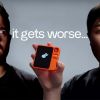 +28 +3
+28 +3Rabbit Gaslit Me, So I Dug Deeper
-
 +30 +3
+30 +3Where are floppy disks today? Planes, trains, and all these other places
No, really! Floppy drives still live on in many surprising places, and not just the homes of die-hard techies.
-
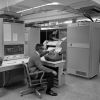 +29 +3
+29 +3BASIC turns 60: Why simplicity was this programming language's blessing and its curse
Since the 1960s, BASIC has introduced countless beginners to computer programming. Here's how the language got started, the paths it cleared for Windows and Apple, and where you can still find it today.
-
 +42 +7
+42 +7We Need To Rewild The Internet
The internet has become an extractive and fragile monoculture. But we can revitalize it using lessons learned by ecologists.
-
 +32 +3
+32 +3FCC Reinstates Net Neutrality In A Blow To Internet Service Providers
Major internet providers once again will have to abide by a set of robust rules as the FCC today reinstated net neutrality regulations.
-
 +33 +1
+33 +1AYANEO's New NES-Style Mini PC: Pretty, and Pretty Powerful -
Remember the AYANEO mini PC I wrote about last year? You know, the one that looked like a classic Macintosh, ran Windows 11, and was advertised as being
-
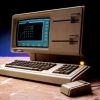 +28 +8
+28 +8The real significance of Apple's Macintosh
40 years on, it's still widely misunderstood
-
 +31 +5
+31 +5How to Build an Origami Computer
Two mathematicians have shown that origami can, in principle, be used to perform any possible computation.
-
 +36 +5
+36 +5Firefox has a DEB PACKAGE! | Installing Firefox without Snap
-
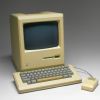 +37 +4
+37 +4The Mac turns 40: How Apple's rebel PC almost failed again and again
In 1984, a $2.5k computer - with a 9-inch black-and-white display, 128KB RAM, 400 KB floppy drive, and built-in networking - changed everything. Until it didn't. Then these two things saved the Mac.
-
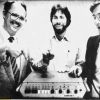 +29 +7
+29 +7The Inside Story of PC Magazine, PC World, and Macworld's Origins, as Told by David Bunnell
In the early 1990s, David wrote a proposal for a book about his life and adventures in publishing, covering the founding of PC Magazine, PC World, Macworld, and more. The book didn't happen, but the proposal is good reading in itself.
-
 +28 +5
+28 +5The Hobbes OS/2 Archive logs off permanently in April
Fans of the tech dinosaur have a few months to fill their drives with software
-
 +31 +4
+31 +4Apple pays out over claims it deliberately slowed down iPhones
The tech giant is compensating US customers and faces similar allegations in the UK.
-
 +59 +14
+59 +14This is how to protect your computers from LogoFAIL attacks
This obnoxious constellation of firmware attacks takes over computers. Here's which devices are vulnerable and what you can do to protect them.
Submit a link
Start a discussion




















